ENVIRONMENTAL AND ENERGY LAW

THE GEORGE WASHINGTON UNIVERSITY LAW SCHOOL WASHINGTON, D.C.
WHO WE ARE
The George Washington University Law School impacts the law and the world, by uniquely combining renowned scholarship and a D.C.-infused education to prepare students who shape solutions to the pressing challenges of our times.
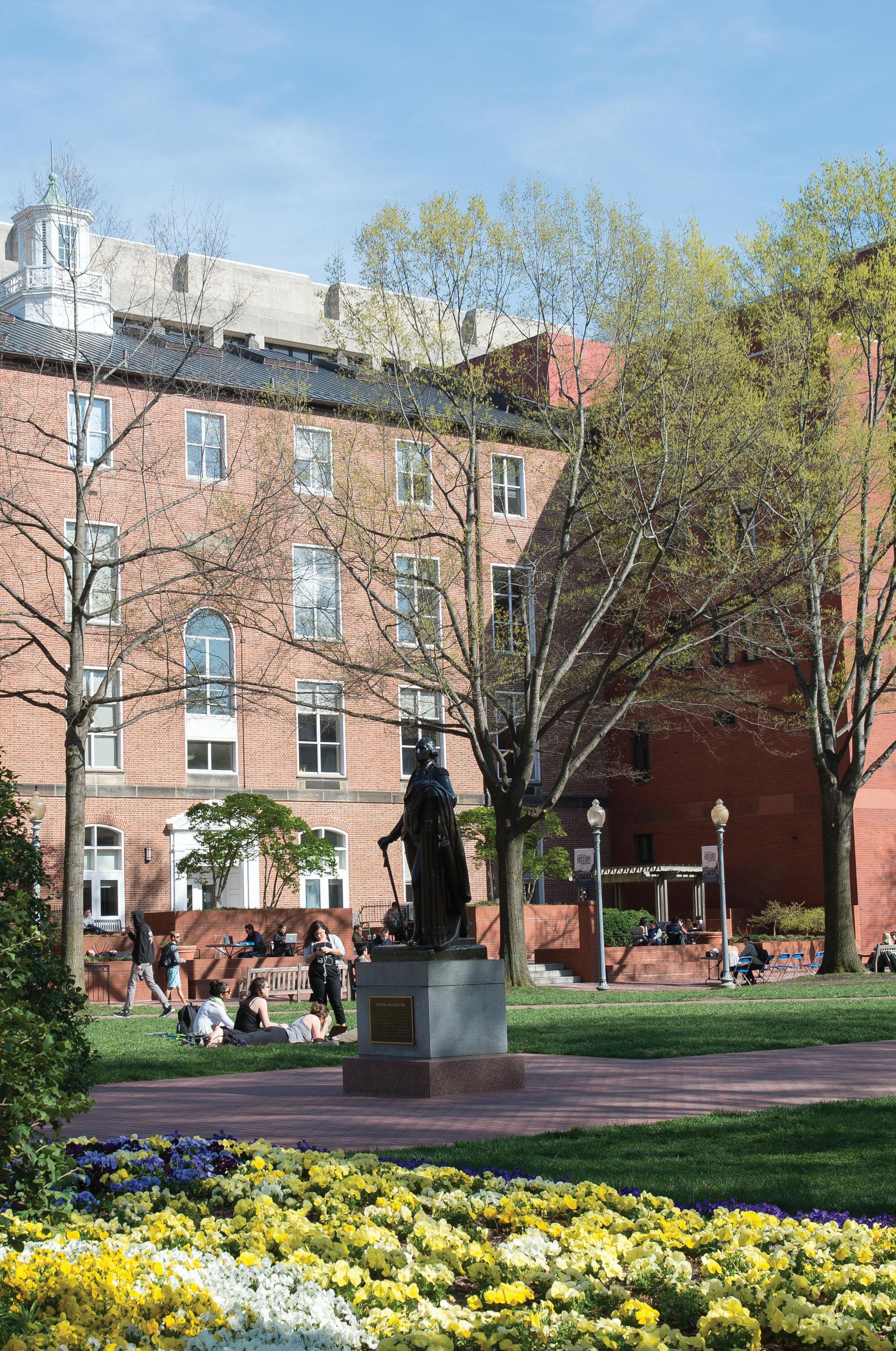
ENVIRONMENTAL AND ENERGY LAW AN EXPANSIVE CURRICULUM, A HIGHLY RESPECTED FACULTY, AN UNBEATABLE LOCATION
GW Law has a long and distinguished history in the fields of environmental and energy law. GW Law’s Environmental Law Program is one of the oldest environmental law programs in the nation. Founded in 1970 to advance study in the then-new field of environmental law, the new program complemented GW Law’s existing offerings in energy law and regulation. This unified program, located in the heart of the nation’s capital, Washington D.C., provides the next generation of environmental and energy lawyers with the tools they need to tackle the local, national, and international challenges facing the planet and its inhabitants, including climate change, air pollution, environmental and energy injustice, water scarcity, and developing and deploying new sources of energy.
GW Law offers a robust curriculum in both environmental law and energy law. The Environmental and Energy Law Program offers more than two dozen courses every academic year. Because GW Law is located where environmental and energy law policy is debated and made, students have the unique opportunity to learn environmental and energy law from nationally and internationally recognized experts in the field. Students may choose to intern and work with some of the most influential government and nonprofit environmental and energy organizations, private firms, and companies in the world. GW Law students
become part of an engaged community that includes a network of over 32,000 alumni.
GW Law’s Environmental and Energy Law Program hosts the Sustainable Energy Initiative, the annual J.B. and Maurice C. Shapiro Symposium, and many other distinguished lectures and signature programs. The Environmental and Energy Law program works collaboratively across the university with other GW graduate schools and institutes. Working at the intersection of environmental and energy law, we provide diverse classes and robust opportunities for all of our students.
www.law.gwu.edu | GW LAW – Environmental and Energy Law 1
WE OFFER THREE DEGREE-PATHS FOR PROSPECTIVE STUDENTS

JURIS DOCTOR (JD)
A traditional law degree with concentrations in environmental law and energy law.
MASTER OF LAWS (LLM)
For U.S.-educated students who have earned a JD and for international students with a primary degree in law, we offer the following degree programs:
in Environmental Law
MASTER OF STUDIES IN LAW (MSL) IN ENVIRONMENTAL AND ENERGY STUDIES
For professionals who do not have or seek a JD but who wish to deepen their knowledge of environmental and energy law.
2 GW LAW – Environmental and Energy Law | www.law.gwu.edu
• LLM
• LLM in Energy and Environmental Law • LLM in Government Procurement and Environmental Law • LLM in International Environmental Law
CURRICULUM
GW Law offers one of the largest course catalogs in this field, with over two dozen courses offered annually. Students will find both breadth and depth in various facets of the field for a thorough and up-to-date grounding in the evolving fields of environmental and energy law. In addition, students may participate outside the classroom in panel discussions, seminars, and conferences featuring leading scholars and practitioners in these areas of the law.
Courses are open to JD, MSL, and LLM candidates. The LLM degree programs provide training for new and experienced attorneys, while the MSL degree programs are designed for non-lawyer candidates seeking a deeper understanding of the law.
A sample of course offerings:
Air Pollution Control Animal Law Seminar
Atomic Energy Law Climate Change Law and Justice Coastal, Navigation, and Wetlands Resource Law Control of Solid and Hazardous Waste (RCRA & CERCLA)
Energy Commodities, Climate Change, and Derivatives Energy Law and Regulation
Energy Law Seminar: Electricity Grid of the Future
Energy Law Seminar: Offshore Wind Environmental Crimes Environmental Issues in Business Transactions
Environmental Law Environmental Law Seminar: Food and Agriculture Law

Environmental Negotiations
Environmental and Toxic Torts
Federal Facilities Environmental Law Issues
Human Rights and Environmental Protection International Environmental Law International Project Finance Natural Resources Law Oil and Gas Law Regulated Industries
Regulation of Toxic Substances Risk
Selected Topics: How to Practice in Electric and Natural Gas Regulation
Selected Topics in Environmental Law: Environmental Justice Trade and Sustainable Development Water Pollution Control Wildlife and Ecosystems Law
For more information about the Environmental and Energy Law Program, the law school curriculum, and full course descriptions, please visit the Law School Bulletin.

www.law.gwu.edu | GW LAW – Environmental and Energy Law 3
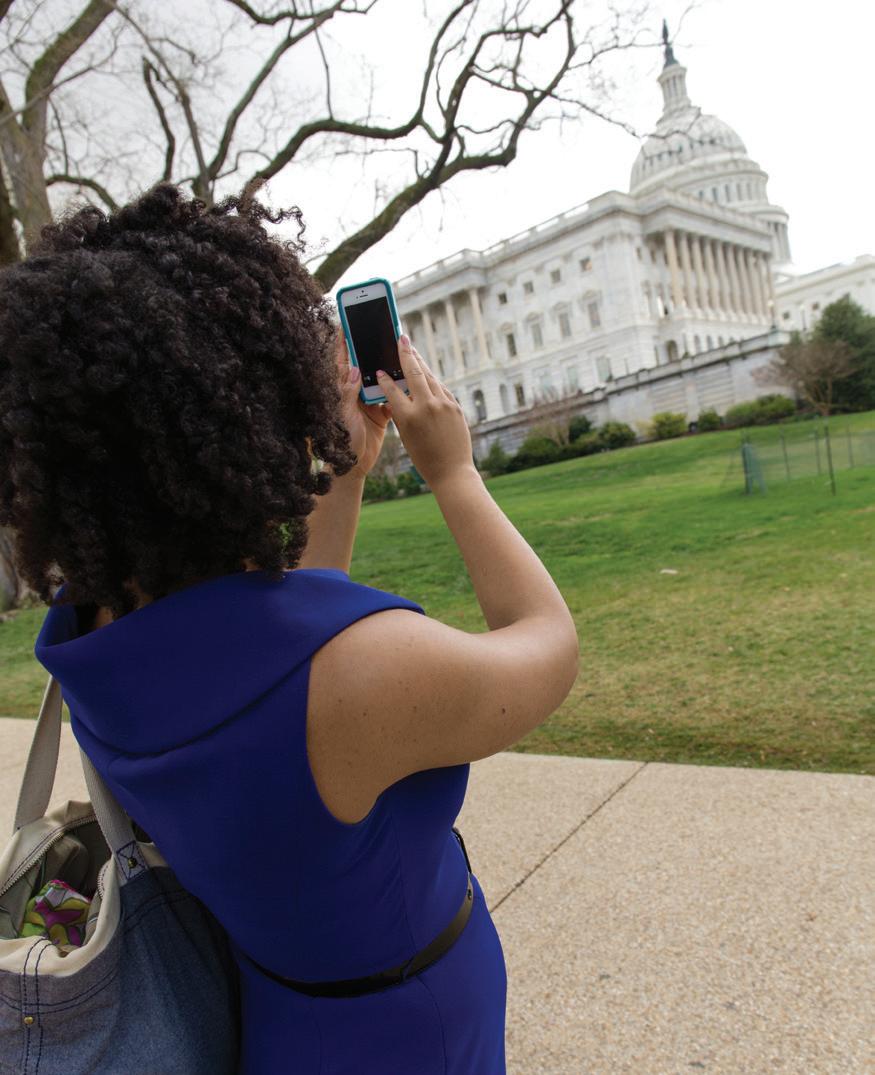


PRACTICAL EXPERIENCE
We connect students with real-world practice. We promote skills-building through our groundbreaking Fundamentals of Lawyering course, which introduces first-year JD students to the nuanced analytical, research, and writing skills that provide a uniquely experiential introduction to life as an attorney and maps a path for professional identity formation and lifelong learning.
Our students gain hands-on experience with the advantage of participating year-round in placements throughout key institutions in the Washington, D.C., area. These include field placements for academic credit and paid internships with governmental agencies, nonprofit organizations, law firms, trade associations, and private companies. Our Washington, D.C., location offers our students opportunities to network through professional organizations and the many national and international organizations that have offices here. Finally, using these advantages of curriculum and location, we assist GW Law graduates in finding successful, fulfilling career opportunities.
FIELD PLACEMENT PROGRAM
Through GW Law’s Field Placement Program, more than 600 students each year receive course credit, supervision by leading legal practitioners, and practical experience that helps jump-start their careers. Our students have secured dynamic, hands-on externships at organizations such as the U.S. Environmental Protection Agency, U.S. Department of Justice, U.S. Federal Energy Regulatory Commission, U.S. Department of Interior, U.S. Department of Energy, World Bank, Environmental Defense Fund, Natural Resources Defense Council, World Wildlife Fund, and American Clean Power Association.
CAREER DEVELOPMENT
GW Law’s Center for Professional Development and Career Strategy (Career Center), one of the largest legal career counseling teams in the country, is dedicated to helping students develop personalized career plans. All counselors are former practicing attorneys with extensive experience in the public and private sectors. Our counselors prepare students to hold clerkships; work at law firms; serve in government positions; and work in international and domestic business ventures. The Career Center hosts nearly 100 programs annually, including panels, networking events, the fall recruitment program, spring interviewing program, and public sector recruitment program.
www.law.gwu.edu | GW LAW – Environmental and Energy Law 5
ENVIRONMENTAL AND ENERGY LAW
THE FACULTY
GW Law is home to leading scholars in environmental and energy law. Several faculty members are the authors of leading casebooks and treatises, and all have helped shape law, policy, and public understanding in their fields through their articles, testimony, blogs, podcasts, other media, and through prominent leadership positions in their fields.
Randall Abate, Assistant Dean for Environmental Law Studies, is the author or editor of several books, including Climate Change and the Voiceless: Protecting Future Generations, Wildlife, and Natural Resources (2019); Climate Justice: Case Studies in Global and Regional Governance Challenges (2016); Climate Change Impacts on Ocean and Coastal Law: U.S. and International Perspectives (2015), and numerous articles.
Donna Attanasio, Assistant Dean for Energy Law, is the author or co-author of “The Regulation of Microgrids” (book chapter) in Energy Law, Climate Change and the Environment (2021); Catalyzing Community Solar: A Handbook for Municipalities (2017); and “Energy Law Education Report,” 36 Energy Law Journal 217 (2015). She is a former President of the Energy Bar Association and retains close ties to the industry.
Robert Glicksman, J.B. and Maurice C. Shapiro Professor of Environmental Law, is the co-author of several leading textbooks and treatises, including NEPA Law and Litigation (2d ed., 2022), Administrative Law: Agency Action in Legal Context (3d ed., 2020), Environmental Protection: Law and Policy (8th ed., 2019), Public Natural Resources Law (2d ed., 2007), Decision Making in Environmental Law (2016), and the monograph, Reorganizing
Government: A Functional and Dimensional Framework (NYU Press, 2019). His congressional testimony has covered matters such as endangered species, unfunded EPA mandates, and ozone pollution.
Emily Hammond, Vice Provost for Faculty Affairs (GW) and Glen Earl Weston Research Professor of Law (GW Law), is the co-author of two leading textbooks in energy and environmental law, as well as numerous articles on administrative, energy, and environmental law. Committed to translating scholarly work into policy action, they have testified before Congress and been co-author of amicus briefs on numerous related topics. From June 2021 to 2022, they served as a presidential appointee in the U.S. Department of Energy, responsible for administrative law, energy, and environmental matters in the Office of General Counsel.
Robin Juni, Associate Professor, is the author of “When the Math Matters: Improving Statistical Advocacy in Gerrymandering Litigation,” 100 Nebraska Law Review 727 (2022) and “Procedures and Standards for Review of Enforcement Actions” (book chapter) in Compliance and Enforcement of Environmental Law (2017).
6 GW LAW – Environmental and Energy Law | www.law.gwu.edu
ENVIRONMENTAL AND ENERGY LAW
LeRoy Paddock, Distinguished Professorial Lecturer in Law and former Associate Dean for Environmental Law Studies, is the author, co-author, or co-editor of several books, including Advanced Introduction to Environmental Compliance and Enforcement (2021), Innovation in Energy Law and Technology: Dynamic Solutions for Energy Transitions (2018), and Decision Making in Environmental Law (2016) (with Professor Glicksman). Prior to his academic career, Professor Paddock had 20 years of environmental law practice experience with the Minnesota Office of the Attorney General.
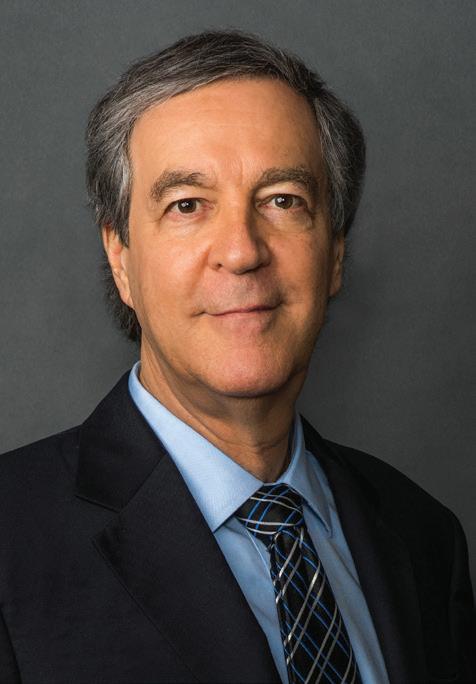
Tenured faculty members who also make significant contributions to the Environmental and Energy Law Program include nationally renowned scholars and GW Law professors Richard Pierce, Steven Schooner, and Steve Charnovitz.
The program’s adjunct faculty includes extraordinarily talented and experienced attorneys who have served in senior environmental and energy law positions within the U.S. government, nongovernmental organizations, and the private sector.
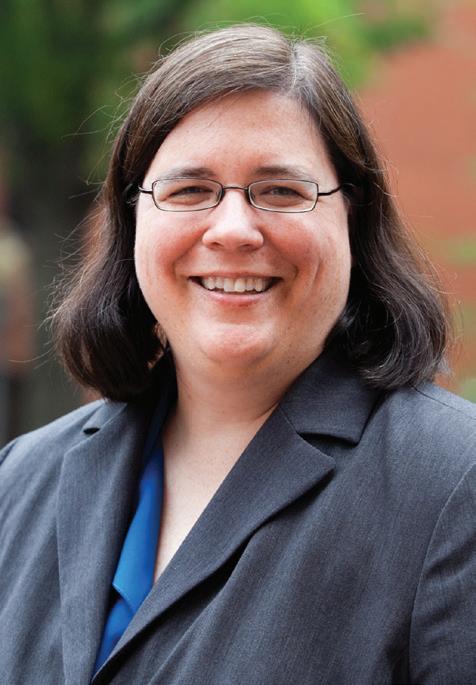
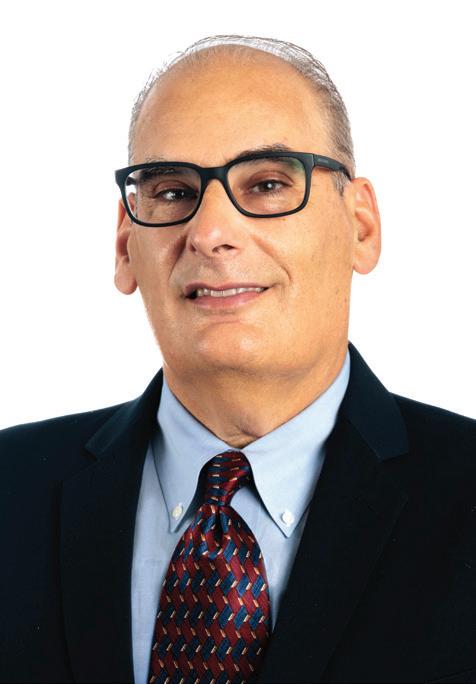



www.law.gwu.edu | GW LAW – Environmental and Energy Law 7
Assistant Dean Randall Abate
Vice Provost Emily Hammond
Assistant Dean Donna Attanasio
Professor Robin Juni
Professor Robert Glicksman
Professor LeRoy Paddock
STUDENT ENRICHMENT
Our students join a vibrant campus community with numerous opportunities to pursue their interests. For example, the Environmental and Energy Law Students Association (EELA) introduces students to the wide variety of EEL-related career paths within the private and public sectors; coordinates panels addressing current events to foster academic debate and dialogue among GW Law professors, deans, and professionals; and hosts an annual Meet the Professors Night in the fall to help students choose courses for the coming year, a Sustainability Week in the spring, and social events.

The Journal of Energy and Environment Law (JEEL) focuses on legal issues related to next-generation energy production and distribution and on environmental and climate law issues related to the production of energy. JEEL is produced in collaboration with the Environmental Law Institute. Numerous events each year showcase leading scholars, practitioners, and policy makers in environmental and energy law. The J.B. and Maurice C. Shapiro Distinguished Lecture on Global Climate Change and Energy Law in the fall and the J.B. and Maurice C. Shapiro Symposium in the spring, are among our signature events.
Because of the law school’s central location in Washington, D.C., students have easy access to professional events and other networking activities including many free opportunities offered by law firms, think tanks, and bar associations.





THE GEORGE WASHINGTON UNIVERSITY LAW SCHOOL www.law.gwu.edu/environmental-energy-law PROGRAM DIRECTORS Randall S. Abate, J.D. Assistant Dean for Environmental Law Studies and Professorial Lecturer in Law randall.abate@law.gwu.edu 202.994.0650 Donna M. Attanasio, J.D. Assistant Dean for Energy Law and Professorial Lecturer in Law dattanasio@law.gwu.edu 202.994.0859 ADMISSIONS INFORMATION admissions@law.gwu.edu 202.994.1010 GRADUATE AND INTERNATIONAL PROGRAMS 202.994.7242 LLM ADMISSIONS llmadmissions@law.gwu.edu MSL ADMISSIONS msladmissions@law.gwu.edu SJD ADMISSIONS sjdadmissions@law.gwu.edu ENVIRONMENTAL AND ENERGY LAW Environmental and Energy Law Program Environmental and Energy Law Events Follow us on LinkedIn
D.C.
THE GEORGE WASHINGTON UNIVERSITY LAW SCHOOL 2000 H Street, NW Washington,
20052




















